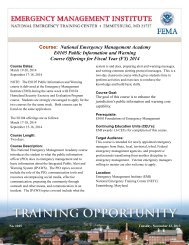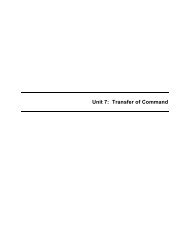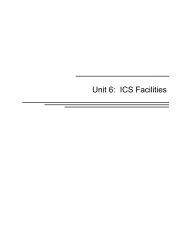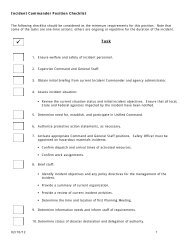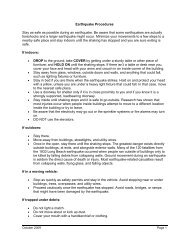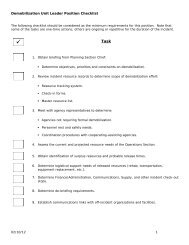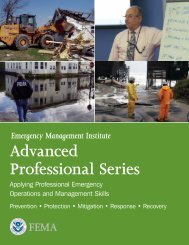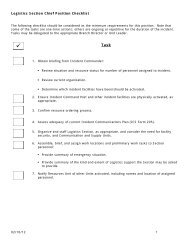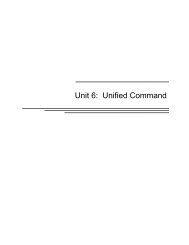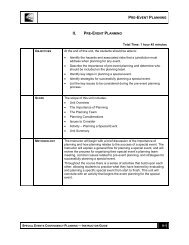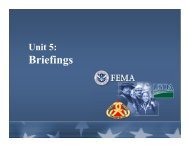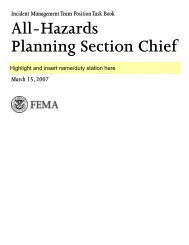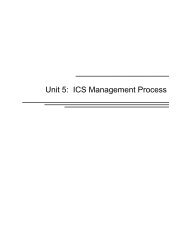Technical Writing - Emergency Management Institute
Technical Writing - Emergency Management Institute
Technical Writing - Emergency Management Institute
Create successful ePaper yourself
Turn your PDF publications into a flip-book with our unique Google optimized e-Paper software.
UNIT 2: RESEARCH IN COMMUNICATIONS<br />
Interviews<br />
Identify people who are knowledgeable about your topic and interview them. The<br />
advantage is you can gain in-depth information and discover material that may be<br />
unique compared to other sources. A disadvantage is the scheduling and preparation for<br />
the interview. An alternate approach is to conduct interviews by phone.<br />
Ask concise questions and allow the interviewee do the majority of the talking. Listening<br />
skills are important during these opportunities. Take extensive notes to avoid relying on<br />
your memory of the session. Recording interviews is another method for capturing<br />
needed information. Always ask permission of the interviewee first before recording an<br />
interview.<br />
Consider a job interview you have participated in.<br />
What questions were asked?<br />
What types of information were you asked to provide?<br />
A job interview represents a potential employer conducting research on an employee<br />
prospect.<br />
How would you prepare to conduct an interview?<br />
How would you prepare to be interviewed?<br />
Interviewing confidence comes from arming yourself with a foundation of knowledge on<br />
your subject. You can gain higher level information in the interview if you can<br />
demonstrate you know the basics. Interviewees will be less likely to lose patience if they<br />
do not have to “teach you the ropes”.<br />
IS-613 <strong>Technical</strong> <strong>Writing</strong> Page 2.7



